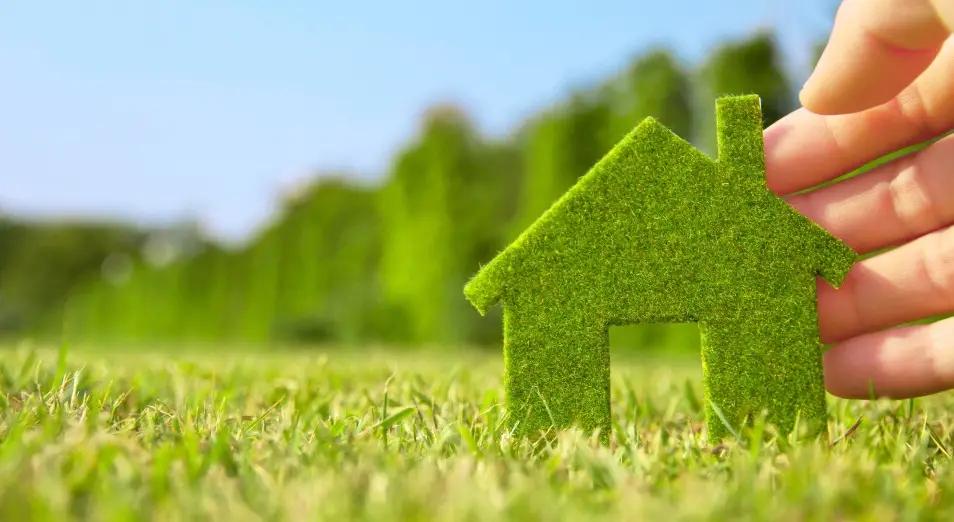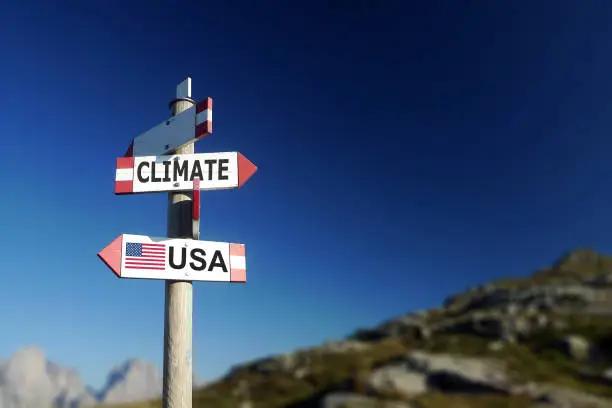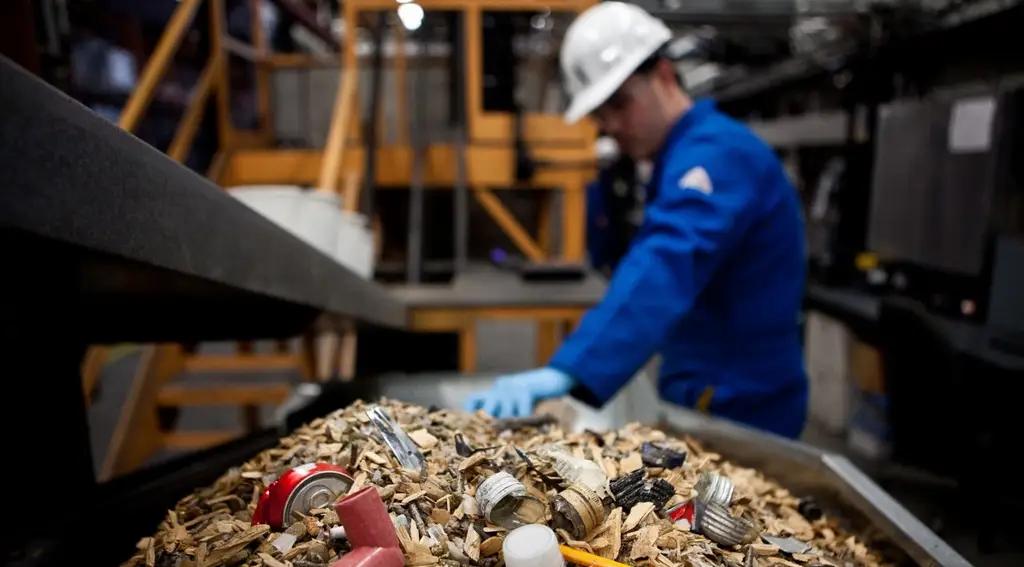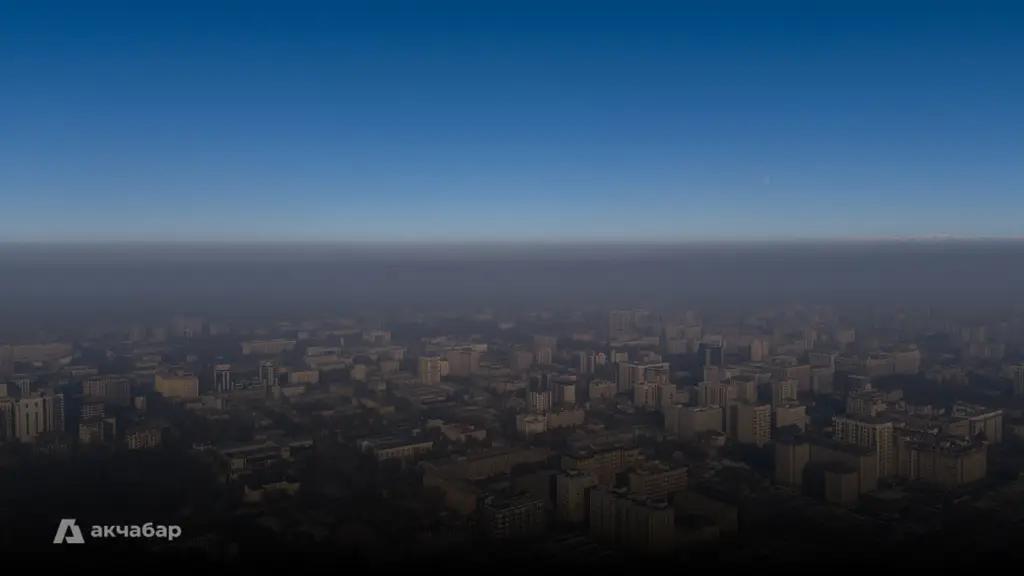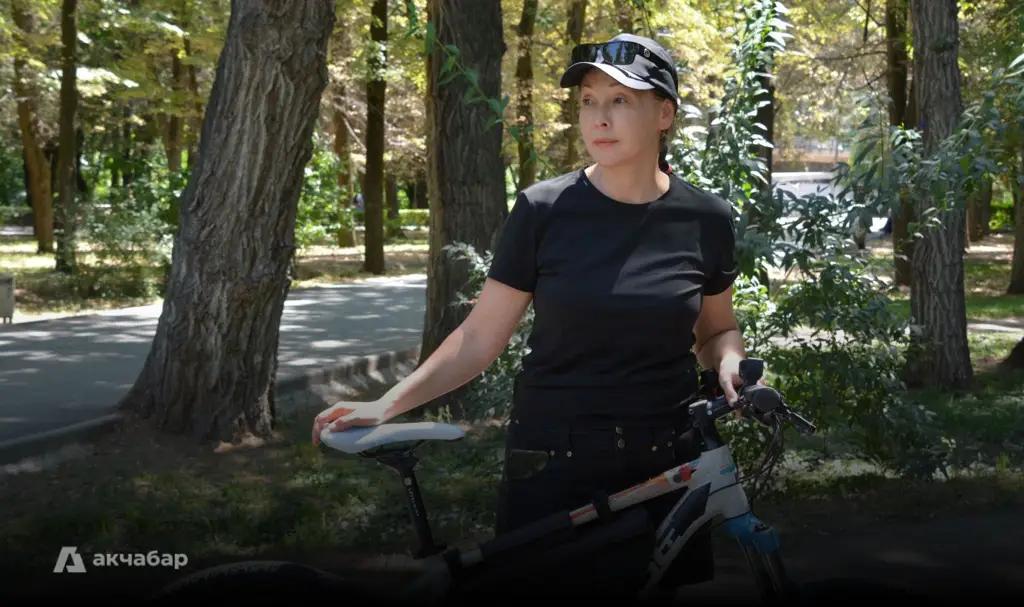
Published
08/29/2024, 18:09Scientists and environmentalists are sounding the alarm, warning us about the danger of greenhouse gases, which cause the planet's atmosphere to heat up, glaciers to melt faster, and the waters of the world's oceans to become more “acidic”, which disrupts the ecosystem. We should not forget about natural disasters, which in recent years seem to have become more numerous, including in Kyrgyzstan. For the past few years, Kyrgyz people have been experiencing climate change in the country and in the world - almost all regions suffered from mudslides, which destroyed infrastructure and caused loss of life.
In 2017, total greenhouse gas emissions in Kyrgyzstan amounted to 0.032% of global greenhouse gas emissions, while net emissions amounted to 0.011%.
Our country's overall mitigation goal is to reduce greenhouse gas emissions by 16.63% by 2025 and 15.97% by 2030.
Two-wheeled transportation produces no harmful emissions to the environment. And by the way, it strengthens the body through constant moderate exercise. Allows you to get to your destination quickly enough and moderately safe, given the traffic jams on the roads, reduces travel time compared to a car or bus. And another important thing is that a bicycle does not require refueling, does not use fuel, and therefore its operation compared to a car is much cheaper.
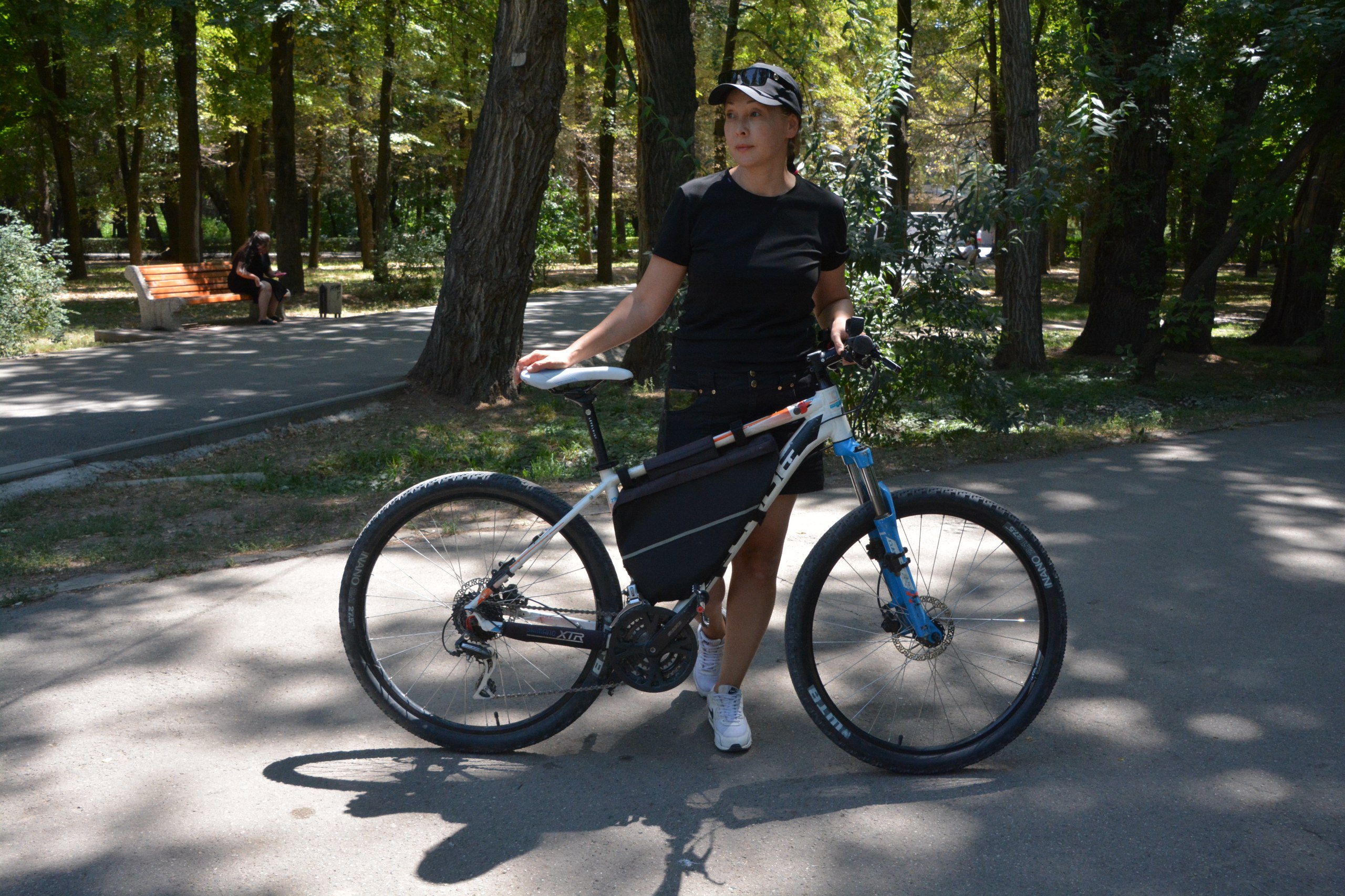
Cholpon Asanakunova, co-founder of the NGO “Velosocommunity” says that we have bike lanes in the city, which are connected to the sidewalk. And bicycle lanes should be separated from both cars and pedestrians. We have such a separated bicycle lane in the park at .South Gate, but it is only about 200 meters.
“Before making road repairs and creating something new, we need to finally adopt a proper city strategy. Now they are planning to buy eco-buses, but there is no concept of sustainable transportation itself, which first of all implies convenient infrastructure for all city residents. Each of us moves around the city in one way or another, whether it is public transportation, a personal car or a bicycle. But most often we walk. Vulnerable part of the population - children, the elderly, moms with strollers, people with disabilities. Moving around the city should be safe for them - we need more crosswalks, wide comfortable sidewalks,” - Cholpon Asanakunova said.
In her opinion, the next, especially important stage is the development of public transportation. When public transportation becomes convenient and operates in a timely manner, it will be convenient for people to plan their time, citizens will know when to go to the bus stop to get to work, and they will be sure that the bus will definitely arrive. Next, it is necessary to encourage the development of personal transportation, such as bicycles, scooters, scooters and monowheels. And only then personal motor vehicles.
“Sixteen years ago, I got tired of riding public transportation. We had such packed shuttle buses, it was so stuffy in them that it was simply impossible to ride. I didn't have enough money for a car, so I decided to buy a bicycle. And since then it has been my main mode of transportation. At first it was scary on the roads. But it turned out that pedestrian paths are even more dangerous: people walk on them, a child can run out. As a result, it's easier to get around on the road,” - says Cholpon.
A few years ago, Cholpon's son also chose a bicycle and rode it to school. The capital's gymnasium has created a bicycle parking lot for such students, and, by the way, the children actively use it, coming to lessons on their bikes.
Cholpon Asanakunova believes that bicycle lanes in our city can be built along roads where cars are parked now, taking away a whole roadway from the city.
“The city allows the creation of bicycle lanes, there are no sharp drops in height, and it will be easy to get from one part of the city to another,” - she says.
Asanakunova is also convinced that in order to be noticed on the roads and considered with cyclists, it is necessary to make changes to traffic rules so that drivers also know how to properly avoid cyclists. Also to introduce the very concept of bicycle lanes. In addition, now there are a lot of scooters in the city, they should have a speed limit - 20 kilometers per hour in the city - it is normal.
“The bicycle as an eco-transport can develop not only in the capital. For example, between villages, everyone, from kids to adults, uses bicycles to go to a neighboring village, to go to the store for groceries. A bicycle is much easier and more accessible than waiting for a hitchhiker or calling a cab,” - says my interlocutor.
By the way, our country has no statistics on how many people have switched from cars to bicycles in the past few years. But Cholpon Asanakunova assures me that over the past five years, there have been many more bicyclists in the capital, and services for them are also developing - repair shops and places where you can buy everything you need to ride a bicycle comfortably around the city. By the way, foreign tourists often come to Kyrgyzstan to ride bicycles. This kind of tourism is most developed in Issyk-Kul, from there foreigners on bicycles go to travel further to neighboring countries.
“In 2017, together with the Peace Corps, we implemented a bicycle project “Zhashoo Uchun”, with volunteers visiting orphanages, conducting games, trainings on ecology and finance, and showing how to use a bicycle. Many people asked about ecology, what projects can be started to improve and preserve nature. Our project involved a variety of people: a designer, a company director, a businessman, a model, a student, a mechanic - all so different, but they became friends and still communicate with each other. And that's why bicycling is a great way to make friends and like-minded people,” - concludes Cholpon.
Our compatriot, Nurshat Ababakirov, is now studying at university and living in New York. In Bishkek, Nurshat often used a bicycle to get around the city, and later introduced his son and daughter to bicycling. He used to take his children to school and kindergarten in a special cart, which, every time it appeared on the road, caught surprised and admiring glances.
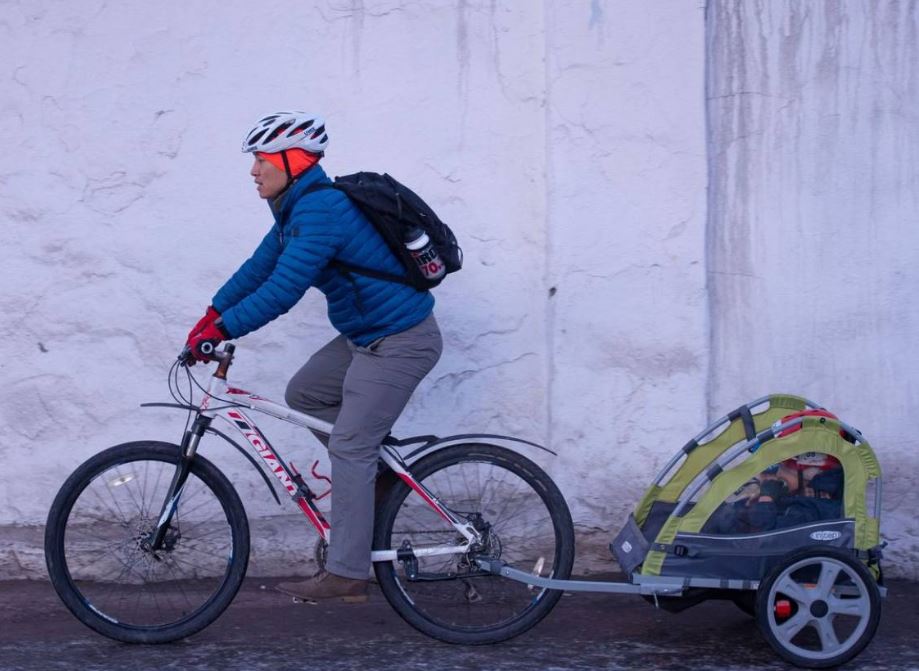
“The bicycle has been present in our lives for quite a long time, our grandparents and parents always had a bicycle. They used it as transportation to get to the mill for flour and back quickly. Bicycles, especially old models, for example “Ural”, could lift up to 100 kilograms of sacks with flour. As children, we also rode bicycles in the village, and as students we took this habit with us to the city. That's how the bicycle stayed with me for the rest of my life. Especially with time, traffic jams became more frequent in Bishkek, and it became almost impossible to travel by car without a long idle time on the road. I was also fond of sports and tried to introduce some sports activities into my daily life. For example, instead of setting aside separate training time for cycling, I rode from home to work, to the store, to take the kids to school or to the garden. For the kids, at first I used baby seats. Then, when they grew up, I bought a special cart to ride two children at a time. In Bishkek, the problem was the lack of infrastructure, and we had to ride on sidewalks because it was not safe to go on the roadway,” - Nurshat Ababakirov said.
But he said the situation has improved significantly over time, and sidewalks have been repaired, but the problem still remains, as the number of scooters and bicycles has increased and they need to be separated from pedestrians.
“In New York, in Manhattan, where my family and I live now, the bicycle infrastructure is very good, and it's not just dedicated bicycle lanes, although they are present almost everywhere. It has its own map where you can see where there are bicycle lanes. But favorable conditions are also formed by the fact that in New York there are not as many cars as in Bishkek. In such a large metropolis, the subway remains the main transportation. It is more expensive to drive a car in New York, besides, it is necessary to pay for parking spaces. Therefore, people are gradually moving away from using cars. Using a bicycle is more convenient and cheaper. And most importantly, there are fewer exhaust fumes, so the air is cleaner,” - says Nurshat.
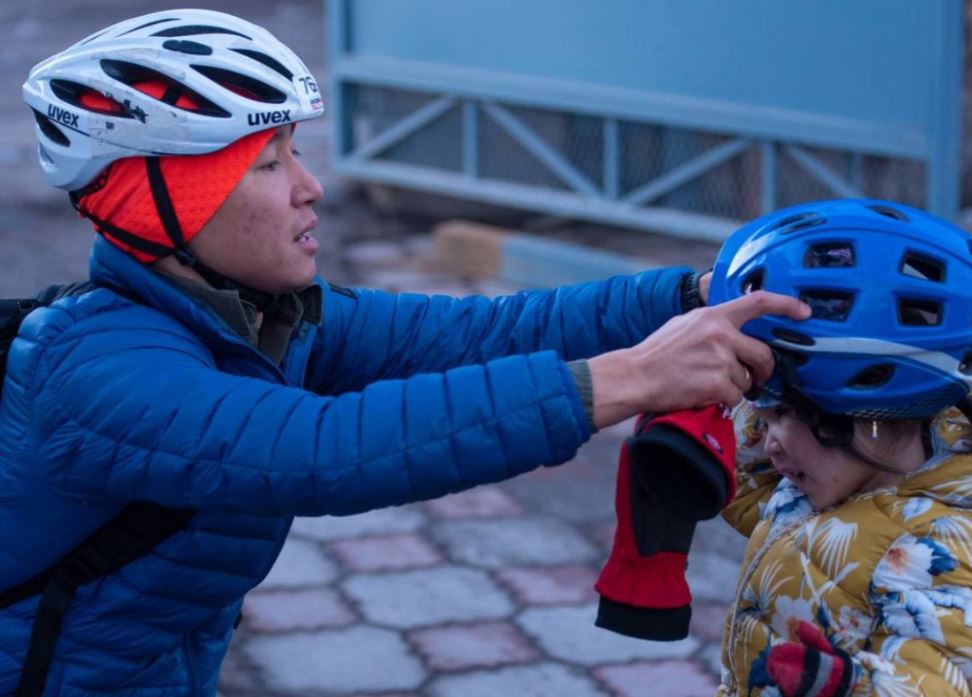
He also adds that bikesharing is well developed in New York. Parking lots are present almost everywhere, and you can rent a bike using an app on your cell phone. And these services are often used by office workers, who can easily ride around the city with the help of a bicycle. And perhaps in the American metropolis all conditions for cyclists are created because there are many who choose this mode of transportation, and therefore there is always a critical mass that is ready to defend their rights to comfortable movement in the city.
